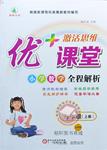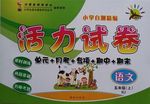题目内容
This is a dangerous world we live in. The numbers of murders goes up every year; people are dying of cancer;more people contract(感染)HIV;more teens are using drugs;etc. You know this because you’ve heard all the statistics on the news. But do you really have an accurate idea what they mean? The numbers are going up, but how do they compare to the growth in population? Are more cases of these diseases being reported because of better testing techniques, or are the diseases more common? The fact is that without knowing the background, statistics mean very little.
This growing trend of reporting only part of the information is becoming dangerous.
For example, several years ago a high school student reported dangers of the chemical known as dihydrogen monoxide. This chemical, found in most cancerous tumors(肿瘤), is found in the blood of people drunk on alcohol, and causes complete physical and mental dependence for those who take the chemical even once. After reading his report, more than 75% of his Advanced Placement Chemistry class voted to forbid this dangerous chemical! Every one of the above statements is true, yet this chemical is necessary to all life on earth. The students made the mistake because they voted knowing only a few statements and statistics, rather than the chemical’s full background.
The point of this article is that one should be aware of what is and is not being said. When one finds a new fact or number, one should try to consider other important information before forming an opinion with only half-truths. Always remember that the author is trying to convince you of his or her own view, and will leave out information that is different to his view. For example, look again at the statistics that suggest skiing is safe. Only 32 people may die each year when skiing, while 897 die from lightning strikes, but which is really more dangerous? If you think about it, you will realize far fewer people go skiing each year than the number of people who are in danger of a lightening strike. When you think about it, skiing is more dangerous than you might at first think when looking at statistics. If we teenagers are to be left in this world, we had better be able think critically, and form our own views. rather than be easily persuaded by another’s. To be warned is to be prepared.
59.In the first paragraph, what problem does the writer want to warn us?
A. We are now living in a dangerous world.
B. We got a lot of false statistics from the media.
C. There are around us more and more murders, diseases etc.
D. Statistics alone without full background don’t give us an accurate picture of things.
60.Why does the writer use the example in the second paragraph?
A. To show the danger of reporting only part of the information.
B. To argue that high school students are easily persuaded.
C. To prove what is necessary to us might be dangerous.
D. To warn us of the harmful substances(物质)around us.
61.Relative information is often left out because__________
A. relative information is not that important
B. the author is trying to show what he or she says is true
C. too much information will make readers feel confused
D. readers are not able to analyze so much information at once
62.What is the main idea of this passage?
A. Some measures must be taken to protect our dangerous world.
B. We should learn to think critically and look at problems from all sides.
C. The growing trend of reporting only half-truths is getting out of control.
D. Teenagers ought to improve their ability of telling right from wrong.
59---62 DABB
【解析】略

 激活思维优加课堂系列答案
激活思维优加课堂系列答案 活力试卷系列答案
活力试卷系列答案Let children learn to judge their own. A child who learns to talk does not learn by being corrected all the time; if corrected too much, he will stop talking. He notices a thousand times a day the difference between the language he uses and the language those around him use. Little by little, he makes the necessary changes to make his language like other people’s, in the same way, children learn to do all the other things without being taught—to walk, run, climb, ride a bicycle—compare their own performances with those of more skilled people, and slowly make the needed changes. But in school we never give a child a chance to find out his mistakes if we thought that he would never notice a mistake unless it was pointed out to him, or correct it unless he was made to. Let him work out, with the help of other children if he wants it, what this word says, what the answer is to that problem, whether this is a good way of saying or doing this or not. If it is a matter of right answers, as it may be in mathematics or science, give him the answer book. Let him correct his own papers. Why should we teachers waste time in doing such work? Our job should be to help the child when he tells us that he can’t find the way to get their own understanding, how to know what they know or do not know.
1.According to the passage, the best way for children to learn things is ___
|
A.to listen to skilled people’s advice |
|
B.to ask older people many questions |
|
C.to make mistakes and have them corrected |
|
D.to do what other people do |
2.According to the writer, teachers in school should ___
|
A.allow children to learn from each other |
|
B.point out children’s mistakes whenever they are found |
|
C.correct children’s mistakes as possible as they can |
|
D.give children more book knowledge |
3.Which of the following does the writer think teachers should not do?
|
A.Give children correct answers |
|
B.allow children to make mistakes |
|
C.Point out children’s mistakes |
|
D.Let children judge their own work |
4.The passage suggests that learning to speak and learning to ride a bicycle are ___.
|
A.different from learning other skills |
|
B.the same as learning other skills |
|
C.more important than other skills |
|
D.not really important skills |
It was Monday. Mrs. Smith's dog was hungry , but there was not any meat in the house.
Considering that there was no better way. Mrs. Smith took a piece of paper, and wrote the following words on it:“Give my dog half a pound of meat.”Then she gave the paper to her dog and said gently:“Take this to the butcher(* person whose job is selling meat)and he's going to give you your lunch today.”
Holding the piece of paper in its mouth, the dog ran to the butcher's. It gave the paper to the butcher. The butcher read it carefully, recognized that it was really the lady's handwriting and soon did it as he was asked to. The dog was very happy, and ate the meat up at once.
At noon, the dog came to the shop again. It gave the butcher a piece of paper again. After reading it, he gave it half a pound of meat once more.
The next day, the dog came again exactly at noon. And as usual, it brought a piece of paper in the mouth. This time, the butcher did not take a look at paper, and gave the dog its meat, for he had regarded the dog as one of his customers.
But, the dog came again at four o'clock. And the same thing happened once again. To the butcher's more surprise, it came for the third time at six o'clock, and brought with it a third piece of paper. The butcher felt a bit puzzled . He said to himeself,“This is a small dog. Why does Mrs. Smith give it so much meat to eat today?”
Looking at the piece of paper, he found that there were not any words on it!
1.Mrs. Smith treated her little dog quite .
|
A.cruelly |
B.fairly |
C.kindly |
D.friendly |
2.It seemed that the dog knew well that the paper Mrs. Smith gave it .
|
A.might do it much harm |
B.could do it much good |
|
C.would help the butcher |
D.was worth many pounds |
3.The butcher did not give any meat to the dog .
|
A.before he felt sure that the words were really written by Mrs. Smith |
|
B.when he found that the words on the paper were not clear |
|
C.because he had sold out all the meat in his shop |
|
D.until he was paid enough by Mrs. Smith |
4.From its experience, the dog found that .
|
A.only the paper with Mrs. Smith's words in it could bring it meat |
|
B.the butcher would give the meat to it whenever he saw it |
|
C.Mrs. Smith would pay for the meat it got from the butcher |
|
D.a piece of paper could bring it half a pound of meat |
5.At the end of the story, you'll find that .
|
A.the dog was clever enough to write on the paper |
|
B.the dog dared not go to the butcher's any more |
|
C.the butcher was told not to give any meat to the dog |
|
D.the butcher found himself cheated by the clever animal |
